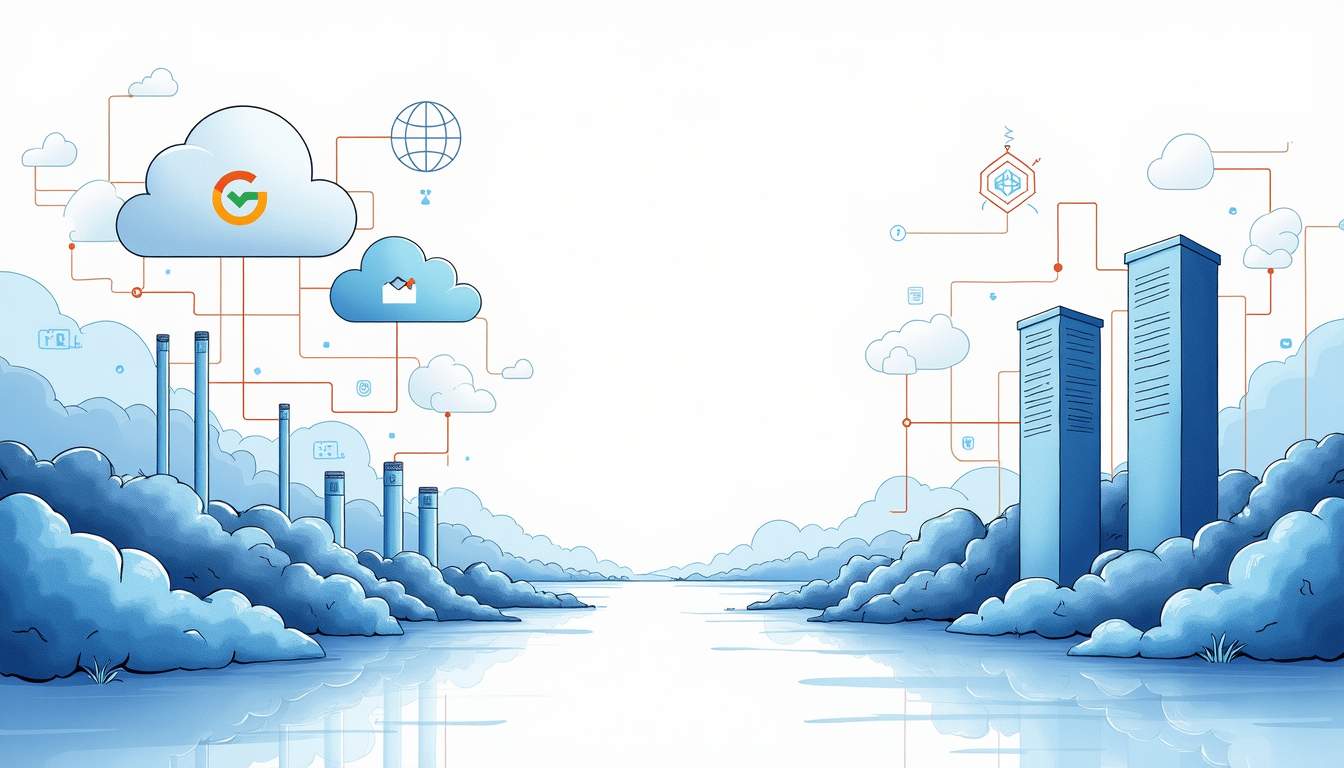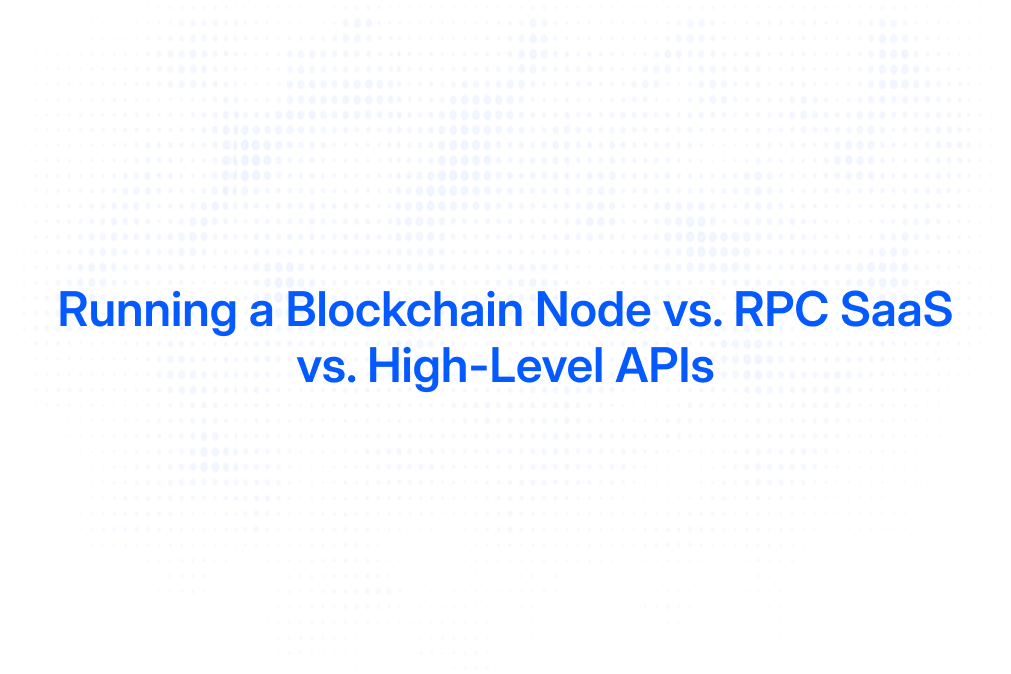Google Cloud vs MCP for Blockchain Infrastructure: What’s the Difference?
As blockchain technology continues to evolve, the infrastructure supporting decentralized applications (dApps) and Web3 projects becomes increasingly critical. Developers and enterprises alike seek reliable, scalable, and cost-effective solutions to handle blockchain API calls, smart contract interactions, and data queries. Two prominent options in this space are Google Cloud RPC services and Google’s Multi-Cloud Proxy (MCP) for blockchain infrastructure. While both play pivotal roles in blockchain API management, they differ significantly in architecture, reliability, and scalability.
This article explores the distinctions between Google Cloud RPC and MCP, helping blockchain developers and infrastructure architects make informed decisions about which solution best fits their needs.
Understanding Google Cloud RPC for Blockchain
Google Cloud offers RPC (Remote Procedure Call) endpoints that enable blockchain applications to interact with nodes and networks hosted on Google’s cloud infrastructure. These endpoints allow dApps to query blockchain data, submit transactions, and listen for events through a centralized cloud provider.
Google Cloud RPC services are typically straightforward to integrate and benefit from Google’s global data centers, providing low latency and high availability. Developers can leverage Google Cloud’s robust infrastructure to scale their blockchain apps without worrying about managing node operations themselves. This ease of integration is particularly advantageous for startups and small teams that may lack the resources to maintain their own infrastructure, allowing them to focus on developing innovative features for their applications.
Key Features of Google Cloud RPC
- Centralized Infrastructure: Google Cloud RPC endpoints are managed within Google’s ecosystem, offering a single-provider experience.
- Global Network: Access to Google’s worldwide data centers reduces latency by routing requests to the nearest region.
- Scalability: Google Cloud’s elastic compute resources allow applications to handle increasing API call volumes seamlessly.
- Security and Compliance: Google Cloud adheres to strict security standards and compliance certifications, which benefits enterprise blockchain projects.
Despite these advantages, relying solely on Google Cloud RPC can introduce risks related to single-provider dependence, such as potential outages or throttling during peak demand periods. Developers must consider implementing fallback mechanisms or diversifying their infrastructure to mitigate these risks. Additionally, understanding the pricing model of Google Cloud RPC is crucial, as costs can accumulate quickly with increased usage, especially for applications that require high transaction throughput or extensive data querying.
Furthermore, Google Cloud RPC supports various programming languages and frameworks, enabling developers to choose the tools they are most comfortable with. This flexibility can enhance productivity and foster innovation, as teams can quickly prototype and iterate on their applications. The integration of advanced analytics and machine learning capabilities offered by Google Cloud can also provide valuable insights into user behavior and application performance, empowering developers to make data-driven decisions that enhance the overall user experience.
Introducing Google Multi-Cloud Proxy (MCP) for Blockchain
Google’s Multi-Cloud Proxy (MCP) represents a newer paradigm in blockchain infrastructure, designed to address the limitations of single-provider RPC solutions. MCP acts as an intelligent routing layer that aggregates multiple RPC providers across different cloud platforms, enabling multi-cloud RPC routing for enhanced reliability and performance.
By abstracting the underlying RPC providers, MCP allows blockchain applications to automatically route requests to the optimal endpoint based on factors like latency, availability, and cost. This multi-cloud approach mitigates downtime risks and reduces latency by dynamically selecting the best-performing RPC node.
Core Advantages of MCP in Blockchain Infrastructure
- Multi-Provider Redundancy: MCP integrates multiple RPC providers, ensuring failover capabilities and minimizing the risk of service interruptions.
- Latency Optimization: Requests are routed to the fastest available node, often across different cloud regions and providers.
- Cost Efficiency: By balancing loads across providers, MCP can optimize costs by leveraging cheaper or less congested endpoints.
- Scalability and API Orchestration: MCP supports orchestrating complex API calls, allowing blockchain apps to scale to millions of requests without bottlenecks.
This architecture is particularly beneficial for Web3 projects requiring high uptime and responsiveness, such as decentralized finance (DeFi) platforms, NFT marketplaces, and gaming dApps.
Comparing Google Cloud RPC and MCP: Key Differences
1. Infrastructure Model
Google Cloud RPC operates as a single-provider solution within Google’s cloud ecosystem. It offers simplicity and ease of use but carries the inherent risk of single points of failure.
MCP is a multi-provider, multi-cloud proxy that aggregates RPC endpoints from various cloud platforms and providers. This distributed model enhances reliability and performance through redundancy and dynamic routing.
2. Reliability and Failover
Single-provider RPC services like Google Cloud RPC can experience outages or throttling, impacting blockchain app availability. In contrast, MCP’s multi-provider setup ensures that if one RPC endpoint goes down, traffic is automatically rerouted to healthy nodes, drastically reducing downtime.
For blockchain applications where uptime is critical, MCP’s failover capabilities offer a significant advantage.
3. Latency and Performance
While Google Cloud’s global network reduces latency by routing requests to the nearest data center, MCP takes this further by continuously monitoring multiple providers and regions to select the fastest endpoint for each request.
This multi-region RPC routing minimizes latency spikes and improves user experience, especially for decentralized applications with global audiences.
4. Cost Optimization
Google Cloud RPC pricing is straightforward but can become expensive at scale, especially during peak usage. MCP’s ability to balance loads across providers and select cost-effective endpoints helps reduce overall RPC costs by up to 40%, a critical factor for startups and projects with tight budgets.
5. Scalability and API Management
Both solutions support scalability, but MCP’s API orchestration capabilities enable more sophisticated management of blockchain API calls. This is essential for applications handling millions of requests per day, where efficient routing and aggregation prevent bottlenecks.
Why Multi-Cloud RPC Routing is the Future of Blockchain Infrastructure
The blockchain ecosystem demands infrastructure that is not only fast and scalable but also resilient to outages and economic fluctuations. Multi-cloud RPC routing, as exemplified by MCP, addresses these needs by combining the strengths of multiple providers.
By distributing traffic intelligently, multi-cloud solutions reduce single points of failure, optimize latency, and control costs. This approach aligns with the decentralized ethos of blockchain itself, promoting robustness and flexibility.
Moreover, as Web3 projects grow in complexity and scale, relying on a single RPC provider becomes increasingly risky and costly. Multi-cloud RPC routing offers a pragmatic path forward, enabling developers to focus on innovation rather than infrastructure headaches.
Choosing the Right Solution for Your Blockchain Project
Deciding between Google Cloud RPC and MCP depends on your project’s specific requirements:
- For projects prioritizing simplicity and integration within the Google ecosystem, Google Cloud RPC offers a reliable and easy-to-use solution.
- If your application demands high availability, low latency, and cost efficiency, MCP’s multi-cloud proxy architecture is better suited to meet these challenges.
- Startups and growing dApps can benefit from MCP’s cost optimization and failover capabilities to maintain seamless user experiences.
- Enterprise-grade applications requiring compliance and security may prefer Google Cloud RPC’s certified infrastructure but can also integrate MCP for redundancy.
Conclusion
Both Google Cloud RPC and Google’s Multi-Cloud Proxy serve important roles in blockchain infrastructure, but they cater to different operational philosophies and needs. Google Cloud RPC provides a centralized, straightforward RPC endpoint with Google’s global reach, ideal for many standard use cases.
On the other hand, MCP represents a forward-looking, multi-provider approach that enhances reliability, reduces latency, and optimizes costs by leveraging multiple cloud providers and RPC endpoints. As blockchain applications scale and demand grows, MCP’s multi-cloud RPC routing is poised to become the new standard for Web3 infrastructure.
For developers and infrastructure teams, understanding these differences is crucial to building resilient, performant, and cost-effective blockchain applications that can thrive in the dynamic Web3 ecosystem.
As you consider the best infrastructure for your blockchain project, remember that the right choice can significantly impact your application's performance and scalability. Embrace the future of Web3 infrastructure with Uniblock, the Web3 orchestration platform that streamlines your connection to blockchain data. With Uniblock, you'll benefit from a single API endpoint that intelligently routes your traffic across multiple providers, ensuring maximum uptime, minimal latency, and cost savings. Join the ranks of over 2,000 developers across 100+ chains who trust Uniblock to power their dApps, tooling, and analytics. Say goodbye to vendor lock-in and scale your project with confidence. Start building with Uniblock today and take the first step towards seamless decentralized infrastructure management.
.svg)


.png)



